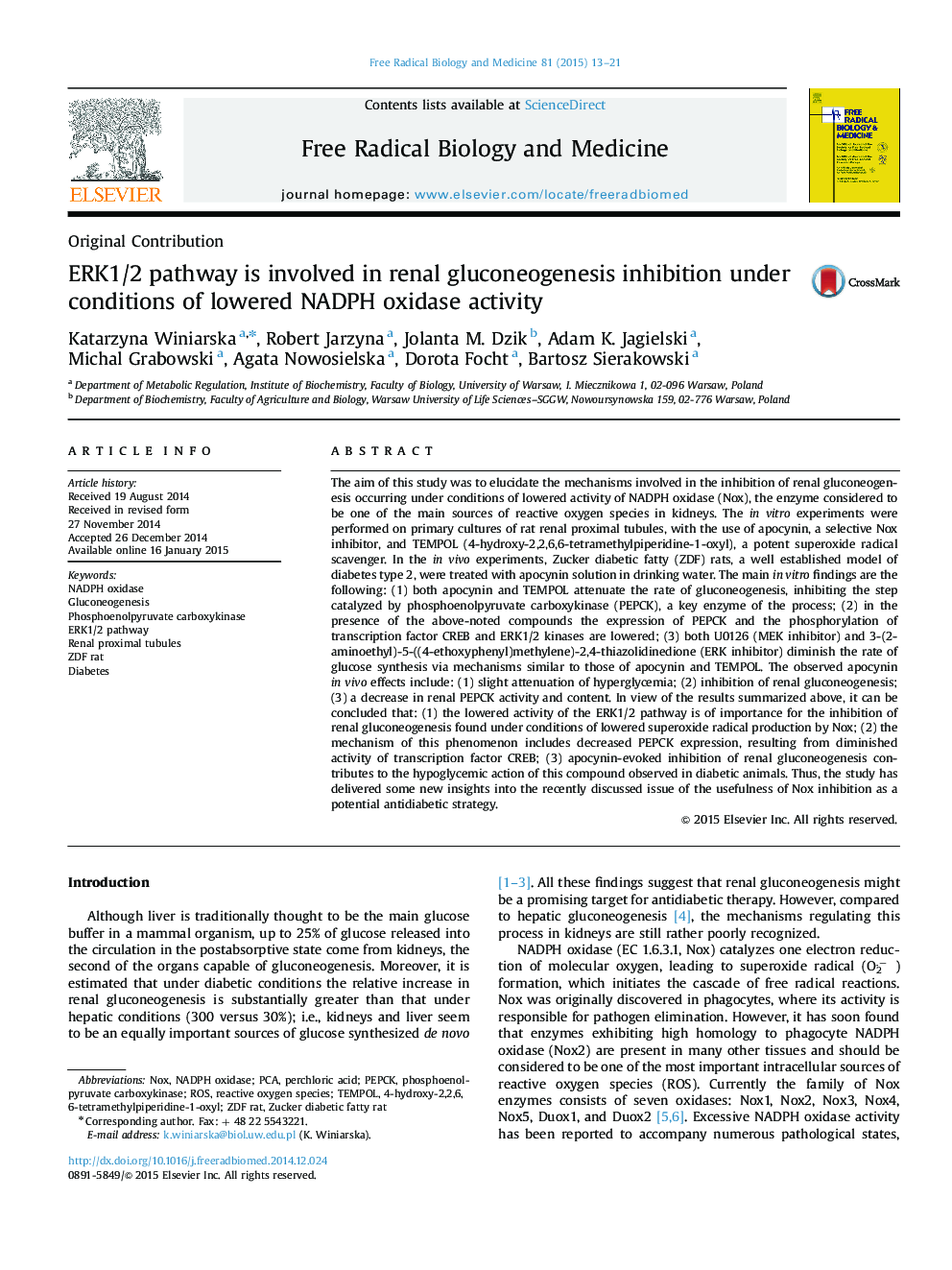| کد مقاله | کد نشریه | سال انتشار | مقاله انگلیسی | نسخه تمام متن |
|---|---|---|---|---|
| 1907812 | 1534961 | 2015 | 9 صفحه PDF | دانلود رایگان |

• Declined O2.− generation by NADPH oxidase leads to renal gluconeogenesis inhibition.
• The diminished glucose production results from lowered PEP carboxykinase expression.
• ERK/CREB pathway is involved in renal gluconeogenesis regulation.
• NADPH oxidase inhibition might be beneficial for diabetic hyperglycemia treatment.
The aim of this study was to elucidate the mechanisms involved in the inhibition of renal gluconeogenesis occurring under conditions of lowered activity of NADPH oxidase (Nox), the enzyme considered to be one of the main sources of reactive oxygen species in kidneys. The in vitro experiments were performed on primary cultures of rat renal proximal tubules, with the use of apocynin, a selective Nox inhibitor, and TEMPOL (4-hydroxy-2,2,6,6-tetramethylpiperidine-1-oxyl), a potent superoxide radical scavenger. In the in vivo experiments, Zucker diabetic fatty (ZDF) rats, a well established model of diabetes type 2, were treated with apocynin solution in drinking water. The main in vitro findings are the following: (1) both apocynin and TEMPOL attenuate the rate of gluconeogenesis, inhibiting the step catalyzed by phosphoenolpyruvate carboxykinase (PEPCK), a key enzyme of the process; (2) in the presence of the above-noted compounds the expression of PEPCK and the phosphorylation of transcription factor CREB and ERK1/2 kinases are lowered; (3) both U0126 (MEK inhibitor) and 3-(2-aminoethyl)-5-((4-ethoxyphenyl)methylene)-2,4-thiazolidinedione (ERK inhibitor) diminish the rate of glucose synthesis via mechanisms similar to those of apocynin and TEMPOL. The observed apocynin in vivo effects include: (1) slight attenuation of hyperglycemia; (2) inhibition of renal gluconeogenesis; (3) a decrease in renal PEPCK activity and content. In view of the results summarized above, it can be concluded that: (1) the lowered activity of the ERK1/2 pathway is of importance for the inhibition of renal gluconeogenesis found under conditions of lowered superoxide radical production by Nox; (2) the mechanism of this phenomenon includes decreased PEPCK expression, resulting from diminished activity of transcription factor CREB; (3) apocynin-evoked inhibition of renal gluconeogenesis contributes to the hypoglycemic action of this compound observed in diabetic animals. Thus, the study has delivered some new insights into the recently discussed issue of the usefulness of Nox inhibition as a potential antidiabetic strategy.
Figure optionsDownload high-quality image (100 K)Download as PowerPoint slide
Journal: Free Radical Biology and Medicine - Volume 81, April 2015, Pages 13–21